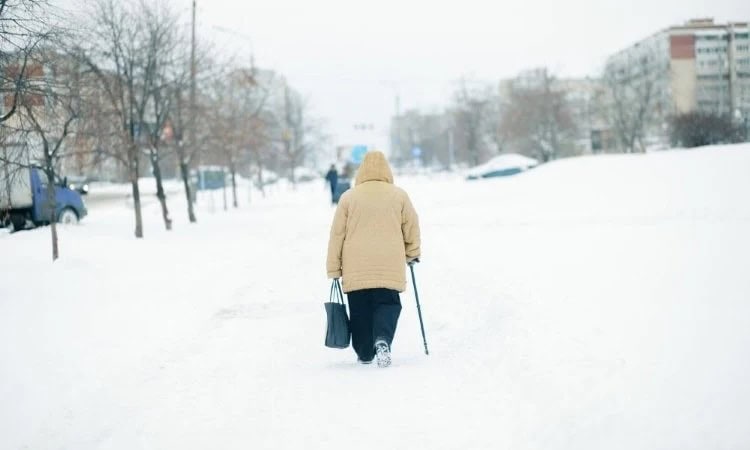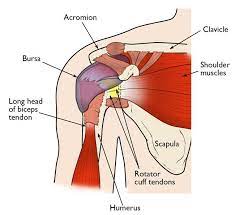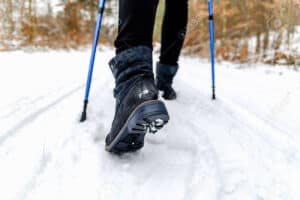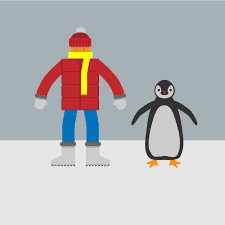
With snowy winter days finally here, we see an increased number of “fall related injuries” at South Simcoe Physiotherapy’s clinics in both Tottenham and Alliston.
A 2021 study (by Huynh et al) found that from 2011 to 2015 falls were “the leading cause of injury related hospital visits among Canadians, especially seniors”. “There were 761 853 falls related emergency depart visits in Ontario. There was increased number of falls after a week of snow falls”. That is almost 800 000 preventable injuries that have resulted in emergency room visits and many resulted in significant disability!
Falls due to snow are very common in all age groups but the senior population is at higher risk. Many factors contribute to an elevated risk of falling, but here are some common causes that we see at our Tottenham and Alliston physiotherapy clinics:
1. Balance: Balance can become impaired in the ageing population for many reasons. Cognitive impairments, the use of certain medications and the loss of sensation are some common reasons for a loss of balance.
2. Lack of or inappropriate use of assistive devices: Many individuals are not using the correct assistive device (for example a cane or walker), have not been properly fitted for the assistive device, or have not been properly taught how to use the device. This improper use may actually increase the individuals risk of falling.

3. Lower body weakness: With ageing often comes a loss of muscle effecting all of our body parts. A loss of strength in the legs especially can increase an individual’s risk of falling. For example, when an individual with weakened quadriceps steps down the stairs and can’t support themself, they are at risk of falling. However, with appropriate and specific strengthening exercises muscles can be reinforced.
4. Pain: The presence of knee pain has been shown to double the risk of falls. Knee pain, foot pain, hip pain and low back pain can all lead to poor muscle control and weakness which can result in increased falls risk.
5. Poor footwear: Ill fitting footwear, worn out footwear, and footwear which is inappropriate for the season/weather can all contribute to an increased risk of falls.
Unfortunately, injuries are often a consequence of these falls. If the individual is fortunate, their injuries will be minor in nature. Bruising and generalized soreness are often experienced after a fall. In more serious cases, fractures of many bones can occur (especially in individuals with osteoporosis where the bones themselves are weakened). The list of potential injuries is endless. Here are a few common injuries that we see at our Tottenham and Alliston physiotherapy clinics:
- Concussions: Concussions (also known as mild traumatic brain injury) can be a very serious injury that can occur as a result of a fall. If you suspect that you have sustained a concussion, immediate assessment and treatment is very important to prevent future disability.
- Back and neck injuries: The neck, low back, and mid-back can all be injured in a slip and fall either as a result of direct impact or the “whipping motion” that can occur with this sudden event.
- Shoulder injuries: Rotator cuff injuries, shoulder separations, fractures and dislocations can occur from a direct blow to the shoulder or as a result of trying to catch yourself when falling.

A 2021 study by Nyeffler et al indicated “A simple fall can cause an acute rotator cuff tear and fall-related tears are not restricted to young individuals. They can affect patients of any age. The stresses occurring within the rotator cuff during an attempt to cushion a fall may [exceed the strength of the tendons] and cause a partial or full-thickness tear”.
Physiotherapy is proven to be the most effective treatment when it comes to rotator cuff injuries. Our physiotherapists at both Tottenham and Alliston locations are well versed in rotator cuff rehabilitation.
Here are some practical strategies to avoid falling and to thereby reduce the risk of many of the aforementioned injuries:
- Choose proper footwear: Wear boots and shoes with proper grip and non-slip sole and add ice grippers, also consider using walking poles. Use a pick on your cane in the winter if you normally walk with one.

2. Keep your hands free: Keep your hands outside of your pockets and on the side of your body. Avoid carrying anything heavy or awkward.
3. Take small steps (penguin walk): In icy conditions take small shuffling steps, with your feet pointed outward to allow for wider base of support. Keep your knees slightly bent and relaxed to lower your centre of gravity.

5. Walk on cleared walkways. Use the safest route to your location and the safest route into the building.
6. Be careful of hidden ice and dark areas on pavement as they can be slippery and dangerous.
7. Be aware of your surroundings. Avoid texting or talking on your phone and walking at the same time.
8. Be careful getting in and out of your car. Hold onto your car door or car as you get out to give yourself extra support.
It is well documented that Physiotherapists are skilled professionals that can help prevent falls in individuals who are at risk. Papalia et al writes “Physical exercise is an effective treatment to improve static and dynamic balance and reduce the number of falls and fallers for patients aged 65 or over. [There is] strong evidence that exercise programs can reduce fall rates in the geriatric population. Balance and postural exercises should be included in training protocols for the elderly in order to prevent the risk of falls, and they should be performed in the entire healthy population, not only as rehabilitation after stroke, fractures, or for patients affected by neurodegenerative disease. “
Physiotherapists can conduct specific tests such as the “timed up and go” and “reach test” which can help determine falls risk and the need for specific assistive devices. Our physiotherapists in both Tottenham and Alliston are well trained to perform these balance tests and to interpret the results. Our physiotherapists can recommend a suitable assistive device, fit you properly for it, and educate you on how to properly use it. We can also provide those at risk of falling with a comprehensive strengthening and balance program to reduce these risks.
Should you find yourself dealing with an unfortunate injury after a fall, please feel free to contact South Simcoe Physiotherapy in Tottenham or Alliston. Our highly skilled physiotherapists provide exceptional care in a one-on-one environment. Call for your individualized assessment today!
References
Original quantitative research – Associations between meteorological factors and emergency department visits for unintentional falls during Ontario winters
David Huynh, MSc, Caleigh Tracy, Wendy Thompson, MSc, Felix Bang, MPH, Steven R. McFaull, MSc, Jaymes Curran, and Paul J. Villeneuve, PhD
Can a simple fall cause a rotator cuff tear? Literature review and biomechanical considerations
Richard W. Nyffeler, Nicholas Schenk,and Philipp Bissig
The Effects of Physical Exercise on Balance and Prevention of Falls in Older People: A Systematic Review and Meta-Analysis
Giuseppe Francesco Papalia, Rocco Papalia, Lorenzo Alirio Diaz Balzani, Guglielmo Torre, Biagio Zampogna, Sebastiano Vasta, Chiara Fossati, Anna Maria Alifano, and Vincenzo Denaro
